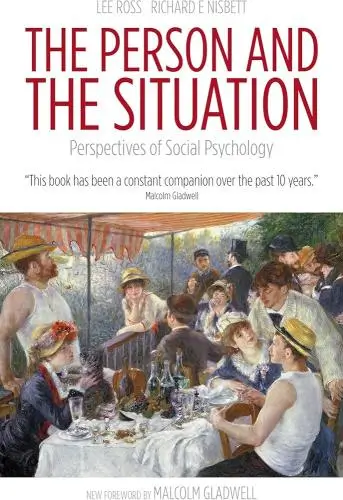
The Person and the Situation
Perspectives of Social Psychology
What's it about?
The Person and the Situation by Lee Ross offers you a compelling exploration of how situations influence human behavior, often more than personal traits. This book challenges the notion of consistent personality traits by highlighting the power of context and environment. You'll discover how situational factors can sway decisions, actions, and perceptions, providing insights into social psychology. Embrace these learnings to better understand not only others but also yourself, enhancing your ability to navigate social interactions effectively.
About the Author
Lee Ross is a psychologist notable for his work on the fundamental attribution error and the "hostile media effect." His writing often explores how cognitive biases influence perceptions and decision-making. Ross's research highlights the importance of understanding psychological underpinnings in social interactions and conflict resolution.
5 Key Ideas of The Person and the Situation
The Power of Situational Forces
Recognize how situations shape behavior, and leverage this understanding to cultivate more harmonious interactions.
Imagine a bustling city intersection during rush hour—chaotic, right? Yet, imagine removing traffic lights and signs. Even small situational changes can either lead to orderly flow or utter chaos, just as minor tweaks in our surroundings influence behaviors.
- Invisible Influence: Often, we underestimate the impact of situational factors, attributing behaviors to personality instead.
- Predictive Power: By understanding situational forces, we can better predict and guide behavior in desired directions.
- Cultural Variability: Different cultures may interpret the same situation differently, changing behavior patterns across contexts.
Identify one recurring interaction (e.g., team meetings) and adjust one element of the setting (e.g., seating arrangement) to observe changes in group dynamics.
Avoid over-attributing behaviors to personal traits without considering situational influences.
Overcoming the Fundamental Attribution Error
Challenge the tendency to overemphasize personality traits over situational factors when evaluating others' behaviors.
Think back to a time when someone cut you off in traffic. Was your initial thought, 'What a jerk!' without considering if they might be heading to an emergency?
- Bias Reduction: Recognizing this error can reduce misjudgments in personal and professional relationships.
- Improved Communication: Understanding situational contexts can facilitate more empathetic and effective communication.
- Conflict Resolution: Helps in addressing root causes of disputes by focusing on situational factors too.
Next time someone frustrates you, pause to consider at least one possible situational reason for their behavior.
Beware of labeling others based solely on isolated incidents, dismissing their broader context.
Harnessing the Power of Social Proof
Utilize the influence of others' behaviors as cues to guide your own decisions and actions wisely.
Remember the last time you didn’t know what to order at a restaurant and went with the waiter's recommendation, trusting that it’s a popular choice?
- Behavioral Insights: People tend to conform to behaviors they observe in others, especially in uncertain situations.
- Norm Formation: Over time, social proof helps establish community standards and accepted norms.
- Decision Ease: It simplifies decision-making, offering a shortcut in complex environments.
Identify an area where you're unsure (like new book selections) and consult reviews or recommendations from trusted sources to guide your choice.
Avoid blindly following the crowd; ensure the behavior aligns with your values and goals.
Deeper knowledge. Personal growth. Unlocked.
Unlock this book's key ideas and 15M+ more. Learn with quick, impactful summaries.
Read Full SummarySign up and read for free!
The Person and the Situation Summary: Common Questions
"People are products of their environments as well as creators of them." This quote from Ross's The Person and the Situation perfectly encapsulates the central idea of the book - the interplay between individual characteristics and external factors in shaping behavior. Ross delves into various psychological experiments and real-world examples to illustrate how context significantly influences our actions, often more than we realize.
One particular section that captivated me was Ross's discussion on fundamental attribution error, where we tend to overemphasize personality traits and underestimate situational factors when explaining the behavior of others. This insight made me reflect on my own perceptions and judgments. However, there were moments that left me pondering, like the complex implications of misperceptions and biases in our daily interactions.
Overall, The Person and the Situation is a thought-provoking read that challenges conventional wisdom about human behavior. If you enjoy psychology books that offer fresh perspectives on how we think and act, this book is definitely worth adding to your reading list.
Experience Personalized Book Summaries, Today!
Discover a new way to gain knowledge, and save time.
Sign up for our 7-day trial now.
No Credit Card Needed

Similar Books

Comprehensive Casebook of Cognitive Therapy
Frank M. Dattilio
The Piano Teacher
Elfriede Jelinek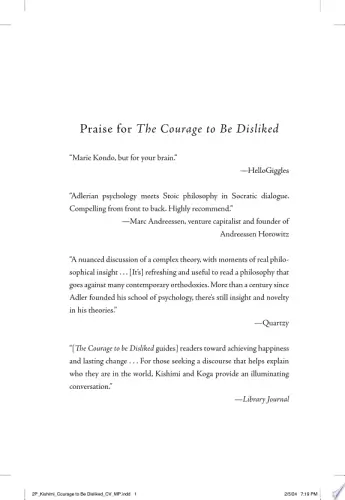
The Courage To Be Disliked
Ichiro Kishimi
We Were Liars
E. Lockhart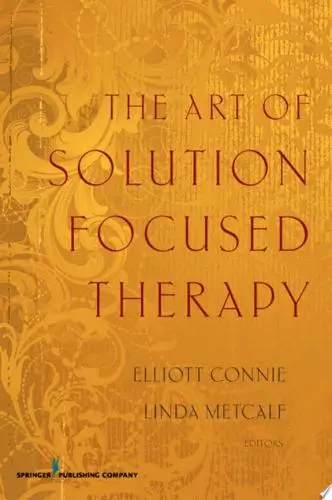
The Art of Solution Focused Therapy
Elliott Connie, MA, LPC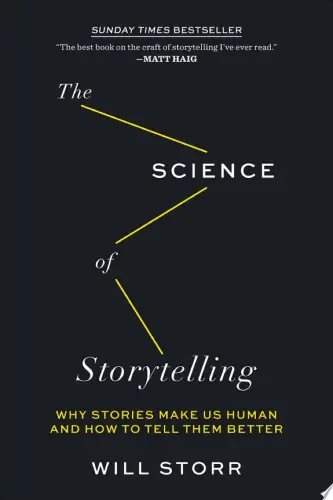
The Science of Storytelling
Will Storr
No Longer Human
太宰治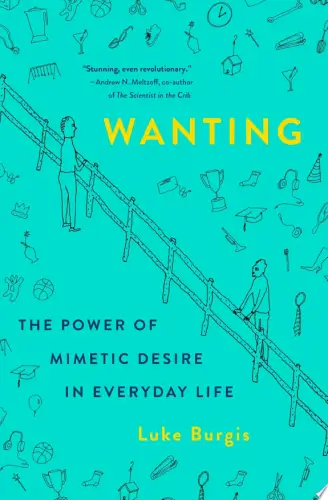
Wanting
Luke Burgis
Mrs Dalloway
Virginia Woolf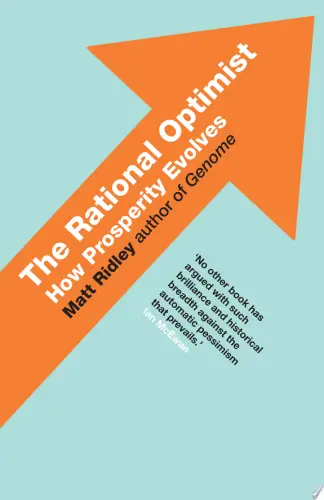
The Rational Optimist
Matt RidleyTrending Summaries

Peak
Anders Ericsson
Never Split the Difference
Chris Voss
Smart Brevity
Jim VandeHei
The Psychology of Money
Morgan Housel
The First 90 Days
Michael D. Watkins
Atomic Habits
James Clear
Thinking, Fast and Slow
Daniel Kahneman
The Body Keeps the Score
Bessel van der Kolk M.D.
The Power of Regret
Daniel H. Pink
The Compound Effect
Darren HardyNew Books

Forex Trading QuickStart Guide
Troy Noonan
Comprehensive Casebook of Cognitive Therapy
Frank M. Dattilio
The White Night of St. Petersburg
Michel (Prince of Greece)
Demystifying Climate Models
Andrew Gettelman
The Hobbit
J.R.R. Tolkien
The Decision Book
Mikael Krogerus
The Decision Book: 50 Models for Strategic Thinking
Mikael Krogerus
Fichte
Johann Gottlieb Fichte
Do No Harm
Henry Marsh
